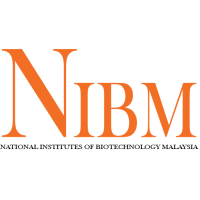Carrageenan is a polysaccharide extracted from different species of red seaweed for use in pharmaceuticals and cosmetics industries. In Malaysia, κ-carrageenan is obtained through extraction from the tropical red seaweed Kappaphycus alvarezii. The use of tissue culture techniques in the propagation of K. alvarezii has proven to be effective in solving cultivation problems and produced high-quality seedlings and providing a sustainable source of better quality carrageenan. In order to understand the molecular mechanisms behind that, a proteomic investigation was conducted comparing the changes in protein expression in tissue-cultured and liquid-cultured K. alvarezii after 60 days of cultivation. Proteomic analysis was used to study the changes in the protein expression level between liquid-cultured and tissue-cultured of the red seaweed K. alvarezii. A total of 45 protein spots were found to be significantly different in their densities and three proteins, namely β-amylase, NAD-dependent sugar epimerase and B-phycoerythrin, showed a consistent pattern of upregulation in ELISA analyses, hence validating the 2-DE profiles. Changes in the proteins expression level were noticed in proteins related to energy production, metabolism and cellular maintenance. The protein changes in tissue-cultured seaweed possibly play an essential role in the production of carrageenan.
Data dan Sumber
| Field | Value |
|---|---|
| Bidang Penyelidikan | Bioteknologi |
| Objektif Sosioekonomi | Advanced Experimental and Applied Science |
| Penerbit | |
| Lesen | License Not Specified |
| Tahap Akses Awam | Public |
| Modified | 2019-12-09 |
| Release Date | 2019-12-05 |
| Identifier | a0010602-2a2f-40df-92fe-f820a159ee36 |
The online version of this article (doi: 10.1007/s10811-017-1119-1) contains supplementary material, which is available to authorized users.

